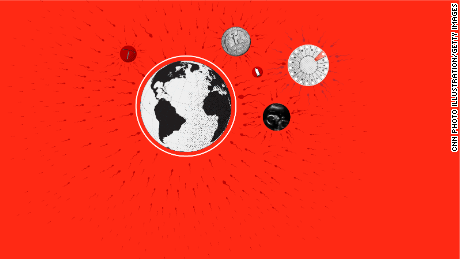How Trump's anti-abortion agenda impacts women around the world
Updated 0958 GMT (1758 HKT) May 24, 2018
CNN is committed to covering gender inequality wherever it occurs in the world. This story is part of As Equals, a year-long series.
For more than 50 years, the United States Agency for International Development has been the largest financial supporter of women's reproductive health services in the world's poorest countries, with funding contributing to programs that have lowered maternal mortality rates, unintended pregnancies and the spread of HIV and sexually transmitted infections.
But health-care workers in the world's least developed countries have expressed concern that an executive order signed by US President Donald Trump shortly after he took office last year has left women without access to free contraception, with many turning instead to unsafe abortions.
The Mexico City policy -- also known as the global gag rule -- cut aid for international non-governmental organizations promoting or performing abortions.
The rule was first introduced by Republican President Ronald Reagan in 1984, and has been rescinded and reinstated along party lines ever since. In January 2017, Trump once again reinstated it in an effort to reduce the number of terminations.
Yet the rule's main goal -- to restrict abortions -- has previously had the opposite effect.
Read More
The last time that the Mexico City policy was enacted in 2001, the Bush administration cut about $600 million in foreign aid. One year later, induced abortions spiked.
Now Trump has expanded the policy, cutting $8.8 billion from family planning NGOs.
And last week, Trump's administration proposed a new rule that would bar abortions or counseling on abortion at US facilities that get federal family planning funds. It would mean that clinics getting these funds would need to be separate from those performing abortions or providing abortion counseling and referrals -- a domestic version of the global gag policy, according to abortion rights activists.
For many International NGOs, US aid has been a crucial lifeline for their services that local governments have been unable, or sometimes unwilling to fund.
With those NGOs concerned about reduced access to contraception in the world's least developed countries, we examine how contraceptive access and use has changed globally over time in six charts.
In the 1960s, contraceptives became widely available worldwide, with access and use varying across the globe.
In developed regions such as North America and Western Europe, access to contraceptives has remained high since the 1970s.
In the world's least-developed countries, contraceptive use has risen steadily over the same time frame, yet women in those nations have use-rates around 28% less than those in the developed world.
Africa has made the greatest gains in contraceptive use since the 1970s compared to other developing regions, but the continent still holds the lowest percentage of women using contraceptives in the world, at around 36%.
And African women also have the highest unmet need for contraceptives, according to the Guttmacher Institute, a US-based reproductive rights think tank.
But for many of those African countries that rely on external funding, an uncertain future could await.
Current contraceptive use prevents an estimated 308 million unintended pregnancies annually among women of reproductive age in developing regions, according to the Guttmacher Institute.
But women who have no access to contraceptives account for a disproportionate number of unintended pregnancies in those countries. Of the estimated 206 million pregnancies in 2017 in developing regions, 43% are unintended.
And now, in clinics across the developing world, women who had received free or subsidized contraception as a result of those NGOs efforts are now resorting to abortions -- many of them in unsafe conditions -- as a form of birth control, according to advocacy groups.
Globally, there were 25 million unsafe abortions annually between 2010 and 2014 and at least 22,800 women died from complications related to them, according to Guttmacher Institute.
— CNN's Eliza Mackintosh contributed to this report.
